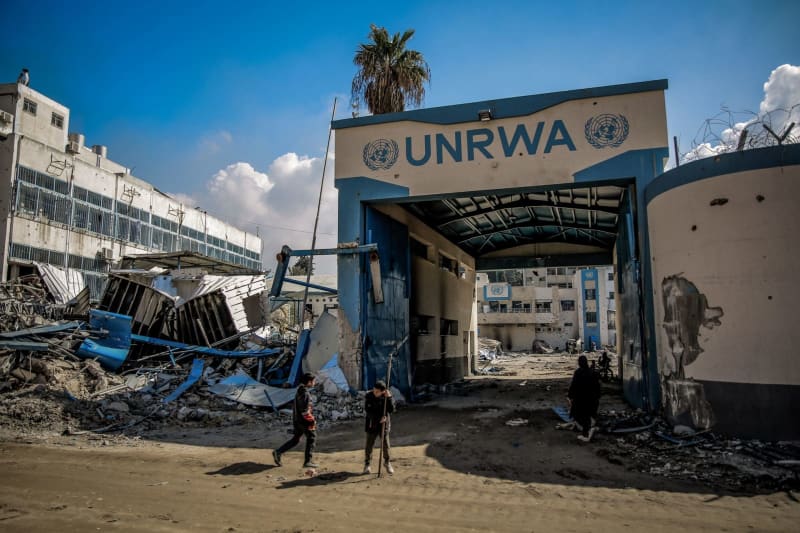Germany’s Foreign Office has voiced significant concern regarding the recent decision by the Israeli Knesset to ban the United Nations Relief and Works Agency for Palestine Refugees in the Near East (UNRWA) from operating within Israel. This agency plays a pivotal role in delivering essential humanitarian aid and basic services to Palestinian refugees situated in Gaza, East Jerusalem, the West Bank, and surrounding areas. A spokesperson from the Foreign Office emphasized that UNRWA’s continued operations are crucial for ensuring vital humanitarian aid reaches the beleaguered population in Gaza, where the humanitarian situation has deteriorated drastically due to ongoing conflict. The German ambassador in Israel echoed these sentiments, highlighting the dire consequences this ban could have on humanitarian efforts in the region.
The Israeli government enacted this ban alongside a second law that restricts any form of contact between Israeli authorities and UNRWA, which is perceived as a move with potentially far-reaching implications for the already fragile humanitarian landscape in the Palestinian territories. According to Israeli officials, this decision stems from concerns that UNRWA has been compromised by the Islamist group Hamas, with allegations that some of its personnel may have even participated in violent attacks against Israel, notably those on October 7, 2023. These claims have fueled a narrative within Israel that characterizes UNRWA not just as a humanitarian agency, but as an organization that harbors elements contrary to Israel’s national security interests.
The German officials’ statements resonate with the growing apprehension about the humanitarian crisis gripping Gaza, where many families are already facing acute shortages of food, medicine, and basic services. The situation further complicates the prospects for peace and stability in the region. Steffen Seibert, in his remarks, pointed out that the legislative changes in Israel are likely to exacerbate the challenges faced by displaced individuals in Gaza, potentially leading to a situation where essential aid could be rendered practically unfeasible. The security controls imposed by Israel over border crossings into the Palestinian territories add another layer of complexity, potentially limiting the flow of international aid.
In response to Israeli actions, the Turkish government has condemned the ban on UNRWA, alleging that it undermines the prospects for a two-state solution and the rights of Palestinian refugees. Turkey’s Foreign Ministry released a statement asserting that these moves are aimed at obstructing the legitimate return of affected Palestinians to their homeland. The Turkish government urged the international community to adopt a firmer stance against the prohibition of UNRWA, emphasizing that the agency was created under the auspices of a UN General Assembly resolution and is thus entitled to operate in fulfilling its mission. As the current chair of the UNRWA financing group, Turkey pledged to continue its support, both politically and financially, for the agency’s vital work.
The international ramifications of the Israeli ban could be significant, given that numerous countries, including Germany and Turkey, have expressed unwavering support for UNRWA’s operations, primarily for humanitarian reasons. Many nations recognize the agency as indispensable for providing assistance to millions of Palestinian refugees, who rely on its services for their basic needs and hope for a semblance of stability amidst the conflicts that impact their daily lives. The implications of restricting UNRWA’s activities could lead to greater instability not only in Gaza but also across the region, contributing to heightened tensions and potential escalations in conflict.
As the situation evolves, the emphasis on international humanitarian law and the obligations of states under such frameworks will likely become more pronounced. The discourse surrounding the humanitarian crisis in Gaza needs to be addressed not only by regional actors but also through concerted efforts and measures taken by the global community. The ban on UNRWA may provoke calls for renewed diplomatic initiatives aimed at resolving the Israeli-Palestinian conflict and ensuring that humanitarian assistance continues unhindered. The future of humanitarian aid operations in the region hangs in the balance, as stakeholders navigate the intricate dynamics shaped by these recent legislative changes and broader geopolitical tensions.

